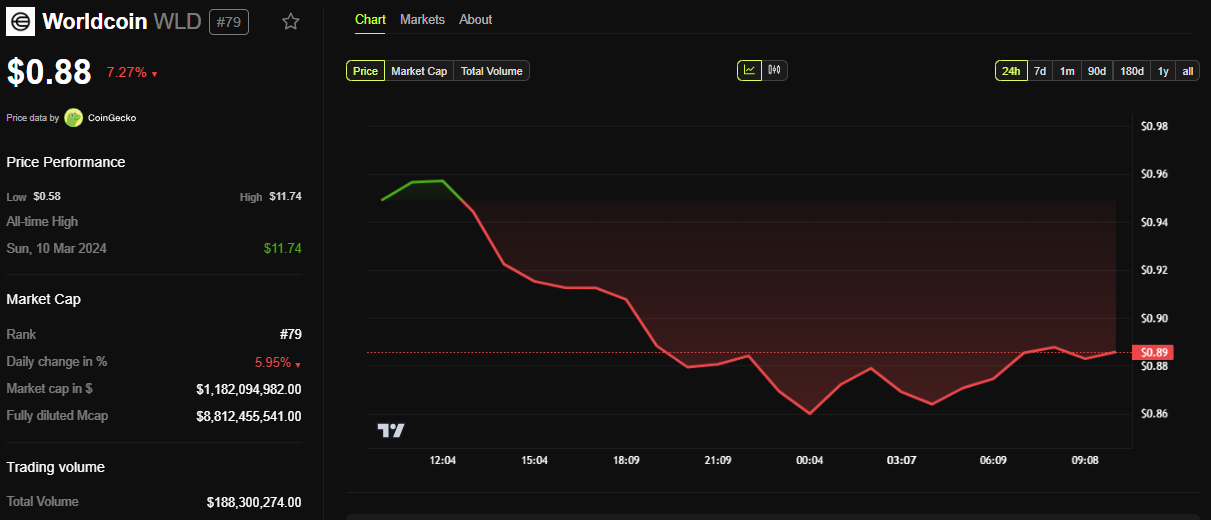World (formerly Worldcoin) suffered a legal blow in Kenya after the High Court ruled that its biometric data collection practices violated constitutional privacy rights.
The court’s decision marks a landmark victory for digital rights advocates in the country and beyond and comes amid growing global scrutiny of the controversial crypto and identity project.
Kenyan High Court Slams Sam Altman’s World Over Privacy Violations
In a judgment delivered on Monday, Justice Aburili Roselyne granted a judicial review application filed by Kenya’s Katiba Institute. The court ordered the Worldcoin Foundation and its agents to terminate all biometric data processing.
The court also ruled that all previously collected data from Kenyan users should be permanently deleted.
“An order of prohibition [is issued] restraining Worldcoin Foundation and its agents from further processing, collecting or dealing in Biometric data without undertaking (or using an inadequate) Data Protection Impact Assessment… or using consent obtained by inducement of a cryptocurrency — Worldcoin,” Katiba Institute reported, citing the ruling.
The judge issued a certiorari order, effectively quashing World’s decision to collect and process such data in Kenya. She cited violations of Kenya’s Data Protection Act, 2019.
A third order of mandamus compels the foundation to delete all biometric data obtained within seven days permanently. The court called out Worldcoin for breaching the law in this regard. The Data Protection Commissioner will supervise the implementation of the order.
“High Court orders Worldcoin to delete biometric data collected in Kenya within 7 days,” local media reported.
ICJ Kenya, committed to protecting and promoting human rights, reiterated the news in a post. It highlighted the court’s determination that constitutional rights, especially the right to privacy, must be upheld even in the digital age.
“The Court affirmed that Worldcoin commenced data collection without valid consent from the Office of the Data Protection Commissioner (ODPC) and without conducting the required DPIA, in breach of Sections 25, 26, 29, 30, and 31 of the Data Protection Act, 2019,” wrote ICJ Kenya
This break comes nearly two years after the Katiba Institute filed the case in August 2023. The organization, which promotes the implementation of Kenya’s Constitution, challenged Worldcoin’s data collection practices.
Constitutional lawyer Joshua Malidzo Nyawa, who spearheaded the prosecution, did not immediately respond to BeInCrypto’s request for comment.
Worldcoin Collecting Biometric Data From Kenyans
In hindsight, the data collection process was controversial. As it happened, Worldcoin offered Kenyans $50 worth of WLD tokens per person. In exchange, they had to volunteer to scan their irises using the Orb device, effectively signing away their biometric data.
The institute argued that this inducement compromised the legitimacy of user consent. Specifically, it failed to meet Kenya’s legal thresholds for data protection.
“The owner of Worldcoin, Sam Altman, is banned from collecting this data in his home country, the US, why do we allow him in Kenya,” parliament majority leader Kimani Ichung’wah said.
The ruling is likely to reverberate across jurisdictions where World operates. Similar concerns have already led to regulatory suspensions in Indonesia. As BeInCrypto reported, authorities halted Worldcoin’s activities over potential violations of data protection laws.
Despite this growing resistance, the project is pushing forward in the US. It recently launched in six cities, including Atlanta, Los Angeles, and San Francisco.
These legal developments had a swift impact on investor sentiment. Worldcoin’s native token (WLD) dropped nearly 10% in the past 24 hours. According to BeInCrypto price data, WLD was trading at $0.88 as of this writing.
The post WLD Drops 10% As Kenya’s High Court Judge Rules Against Sam Altman’s Worldcoin appeared first on BeInCrypto.
